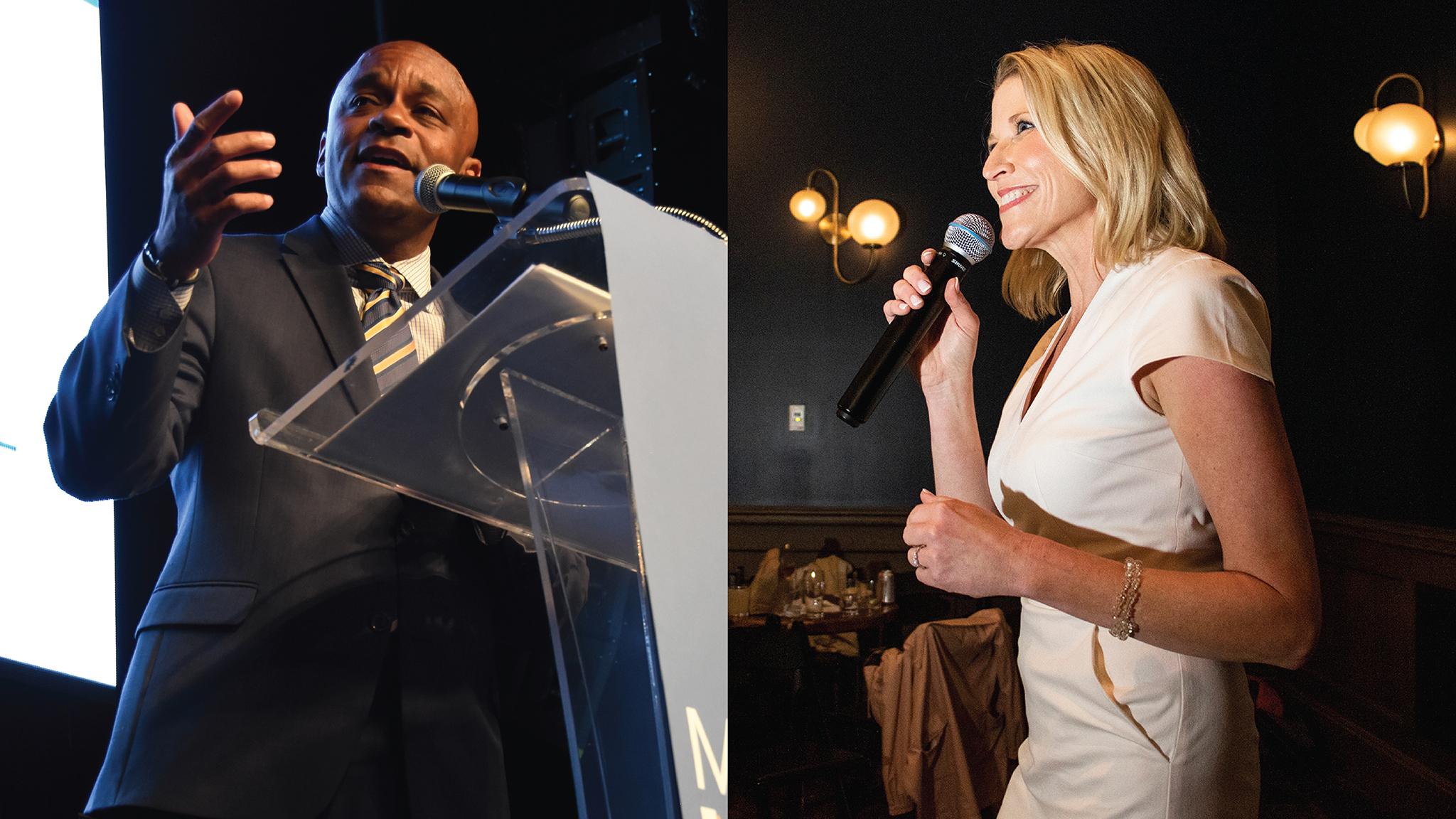Jamie Giellis or Michael Hancock will be Denver's next mayor, but not before another month of yard signs, canvassing, polling, prognosticating, debating and threading on Twitter.
So let's press reset and make sense of some things.
Why is there still a race for mayor?
Candidates can only win outright if they receive more than half of Denver's votes. That did not happen Tuesday.
Hancock earned 39 percent and Giellis earned 26 percent.
The runoff election is June 4. The Denver Elections Division will mail ballots May 20.
How common is this?
Runoffs are common, but runoffs involving incumbents are rare.
Since 2003, not one incumbent has seen a runoff for any municipal seat, according to historical data.
The last incumbent mayor to go head-to-head was Wellington Webb in 1995. He won.
Who will win and why?
Denverite is not clairvoyant and does not know the answer to this question.
But.
Both Hancock and Giellis will try to steal votes that went to other candidates in the general election, and aim to attract new voters, says Paul Teske, dean of the University of Colorado Denver's School of Public Affairs. Giellis has more ground to cover, but might have more room to maneuver.
"Giellis especially needs to get what you could look at as 60 percent of the anti-Hancock vote," Teske says.
One big unknown is whether people who voted for Lisa Calderón and Penfield Tate will show up June 4. Evidence suggests high turnouts. The last mayoral runoff was in 2011, when Hancock won. That tête-à-tête pulled more people to the polls -- about 8,500 additional voters -- than the general election.
Of course, this is a different time in Denver, with different pressures and different candidates. So... like I said, we're not clairvoyant.
Hancock beat Giellis by about 19,000 votes Tuesday, according to the latest results, leaving about 25,000 votes are up for grabs -- if you're counting only people who cast a vote for someone else. Teske gives Hancock the edge, but not the gimme.
"On the plus side for Hancock as an incumbent, he can be running around the city doing official events, trying to show his face a lot," Teske says. "On the other hand, he has to do the job and can't campaign 100 percent of the time like his opponent can."
Will voters who picked losing candidates recycle their votes for Hancock and Giellis?
Again, unclear. But a few Denverites who did not vote for the runoff candidates told Denverite how they feel.
Charley Cooksey of Windsor does not keep up with local politics. He simply googled the candidates just before he filled out his ballot and landed on Calderón. He will probably vote for Giellis next, he said, if only to see a change.
"I think Hancock's been in office for eight years? That's a while," Cooksey said. "And I don't think Jamie's run for political office before, and I think that'll probably be good."
Another Calderón voter, Christine Hoff, told Denverite she intends to vote Hancock.
Chase Middaugh of City Park West said he will vote for Giellis, but he doesn't want to. He called the decision a matter of "the lesser of two evils."
"I never miss an opportunity to vote, even if it's not my favorite, because I think you don't vote you can't complain," Middaugh said.













